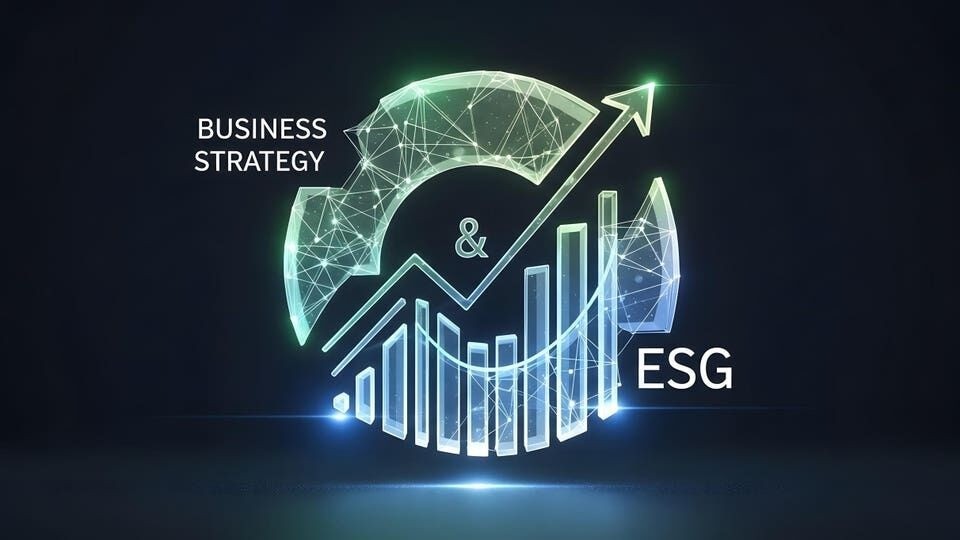3 Ways Generative AI Is Making Our World A Better Place
29 January 2024
Bored of the negative headlines around AI, and specifically generative AI? Then this article is for you. Because we’re going to explore three heartwarming examples that showcase generative AI’s potential to make our world better, not worse.

Preserving The Icelandic Language
What country doesn’t love its native language? And yet, in this increasingly digital world – where English and other major languages dominate – smaller languages are at risk of going extinct. This is a particular concern for the country of Iceland. Most of Iceland’s roughly 370,000 citizens speak English or another language, and this, coupled with the rapid digitization of everyday activities for Icelanders, could potentially put the country’s rich native tongue at risk.
The problem doesn't so much lie in a lack of software built locally for the Icelandic language but in getting the Icelandic language into the global software and applications that Icelanders use every day – things like social media and news or e-commerce sites. So, the government of Iceland has collaborated with OpenAI and is using the GPT-4 language model to help preserve the Icelandic language. (As an aside, the country also has a Language Planning Department that comes up with Icelandic terms for new innovations instead of adopting "loanwords" from other languages. For example, a computer is called a “tölva,” or “number prophetess.”)
When it comes to using generative AI tools like OpenAI’s ChatGPT, the underlying models are trained on vast swathes of text on the internet – meaning much of the training data is in English and other widely spoken languages. In the case of a language like Icelandic, the language model doesn’t have the same capabilities, often resulting in errors and incorrect cultural context. To help change this, a team of language technology companies and volunteers have been training GPT-4 on proper Icelandic language, grammar, and cultural knowledge.
This gives Icelanders the opportunity to interact with OpenAI’s tools in fluent Icelandic – plus, it means Icelandic companies can have an Icelandic-speaking chatbot on their website instead of having to rely on an English-speaking chatbot. It's all part of helping the language survive in the digital age. OpenAI hopes this collaboration will pave the way for GPT-4 to help preserve other languages around the world.
Free Audiobooks From The Project Gutenberg Open Audiobook Collection
I don’t know about you, but I love audiobooks when I’m traveling, walking, or just feel like giving my eyes a break. But creating audiobooks can be an expensive, time-consuming process, requiring the author or a professional narrator to narrate the entire book. But thanks to generative AI, it’s now possible to automatically generate audio content from written text – and even in a human-sounding voice.
This makes it possible to easily create audiobooks of beloved classics and make them freely available to the public, which was the idea behind Project Gutenberg’s Open Audiobook Collection. Project Gutenberg – the oldest digital library of ebooks, established in 1971 – collaborated with Microsoft to turn 5,000 books into free audiobooks, all narrated by AI-generated (but human-sounding) voices using text-to-speech technology. The books are all public domain, and include classic works by William Shakespeare, Jules Verne, and T.S. Eliot. You can access them through Apple Podcasts, Spotify, and Google Podcasts. The project was named one of the Best Inventions of 2023 by Time Magazine.
Helping People Who Are Blind Or Vision-Impaired
Be My Eyes is a Danish startup established in 2012 with the goal of creating technology for people who are blind or vision-impaired. The Be My Eyes app connects blind people with online volunteers who can help them navigate daily tasks, such as identifying a product on a store shelf.
Now, Be My Eyes is working with OpenAI to create the GPT-4-powered Virtual Volunteer, a chat and image-to-text recognition tool that can generate the same level of context and understanding as a human volunteer. This is all possible thanks to GPT-4’s new visual input capability, which allows the model to recognize and interpret images.
It’s this combination of image recognition and GPT-4’s powerful language capabilities that is particularly useful since users will not just be able to get help identifying a product or item – they'll also be able to have a conversation about it. As OpenAI explains, it's the difference between a basic image recognition tool that recognizes an object on the ground as a ball and a tool that communicates to the user that not only is it a ball, but it could be a trip hazard, so take care. In one example, a user was able to navigate a railway system using the Virtual Volunteer, getting details about where they were located and instructions on how to get where they needed to go.
But the Be My Eyes Virtual Volunteer isn’t just designed to help users navigate the physical world. It can also help people understand what’s happening online – in an easier, more intuitive way than existing “screen reader” tools, which can be clunky and slow to use. So, a user can show the tool a webpage, and it will work out which parts of the page to read and which parts can be summarized. As you can imagine, this can make accessing news or using cluttered sites like e-commerce sites much easier.
Are there challenges and concerns around generative AI? You bet there are. But as these examples show, generative AI can be a powerful force for good. If we let it.
Related Articles
5 ESG Trends That Will Shape Business in 2026
By now, “smart” versions exist of just about every home appliance, gadget and gizmos we can think of. However, manufacturers continue[...]
The 5 Robotics Trends In 2026 You Must Get Ready For Now
By now, “smart” versions exist of just about every home appliance, gadget and gizmos we can think of. However, manufacturers continue[...]
Sign up to Stay in Touch!
Bernard Marr is a world-renowned futurist, influencer and thought leader in the fields of business and technology, with a passion for using technology for the good of humanity.
He is a best-selling author of over 20 books, writes a regular column for Forbes and advises and coaches many of the world’s best-known organisations.
He has a combined following of 4 million people across his social media channels and newsletters and was ranked by LinkedIn as one of the top 5 business influencers in the world.
Bernard’s latest book is ‘Generative AI in Practice’.






Social Media